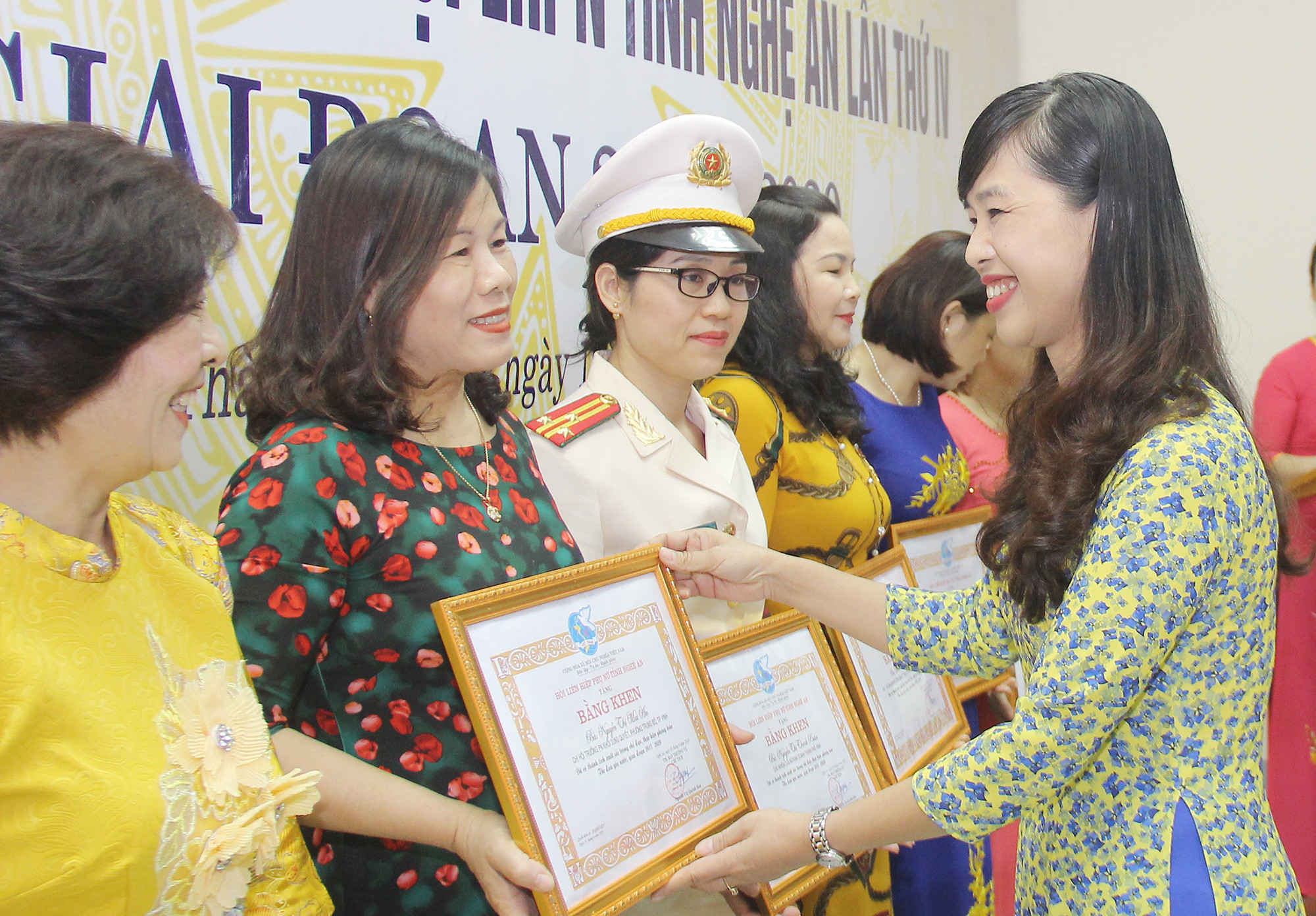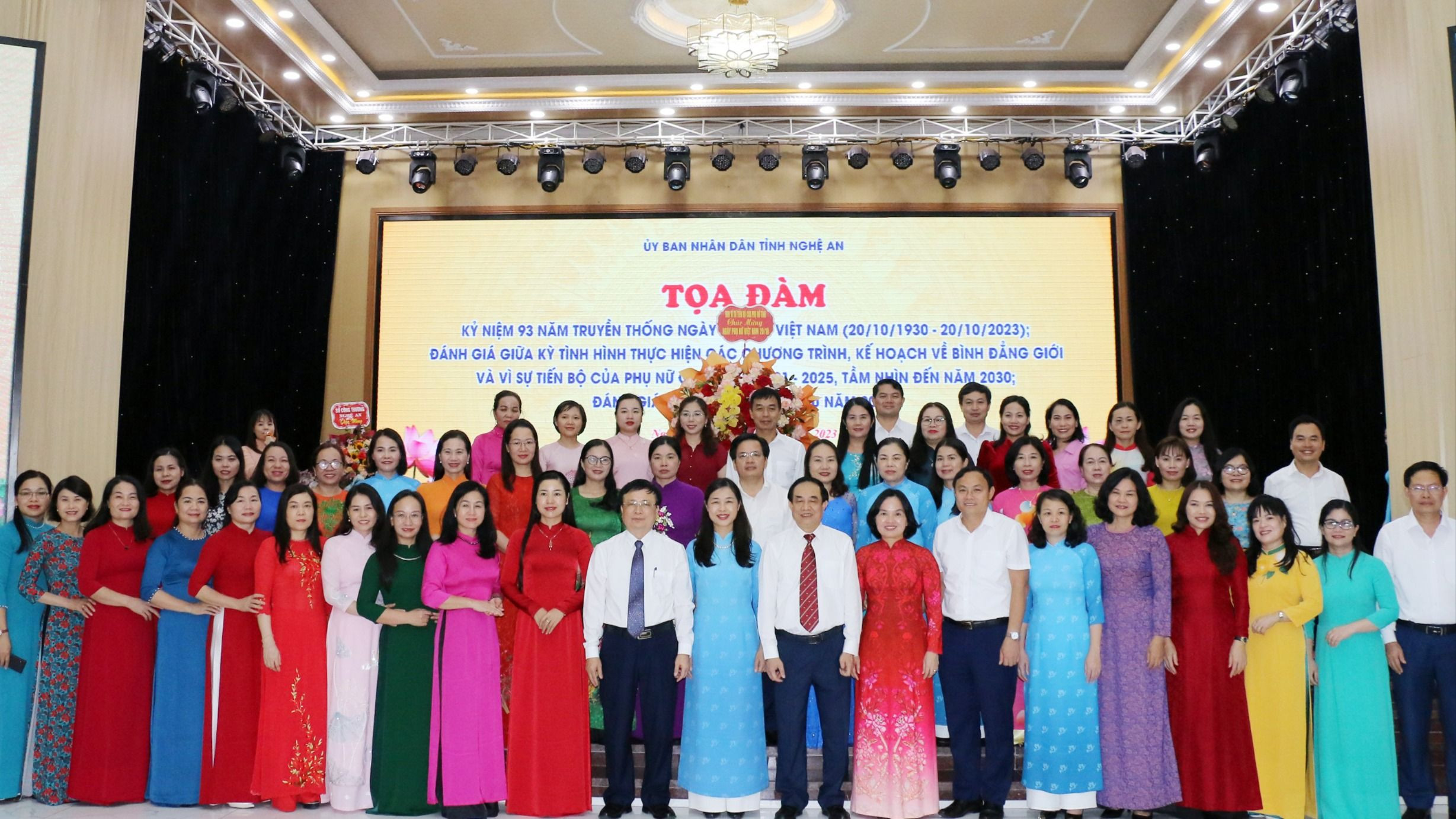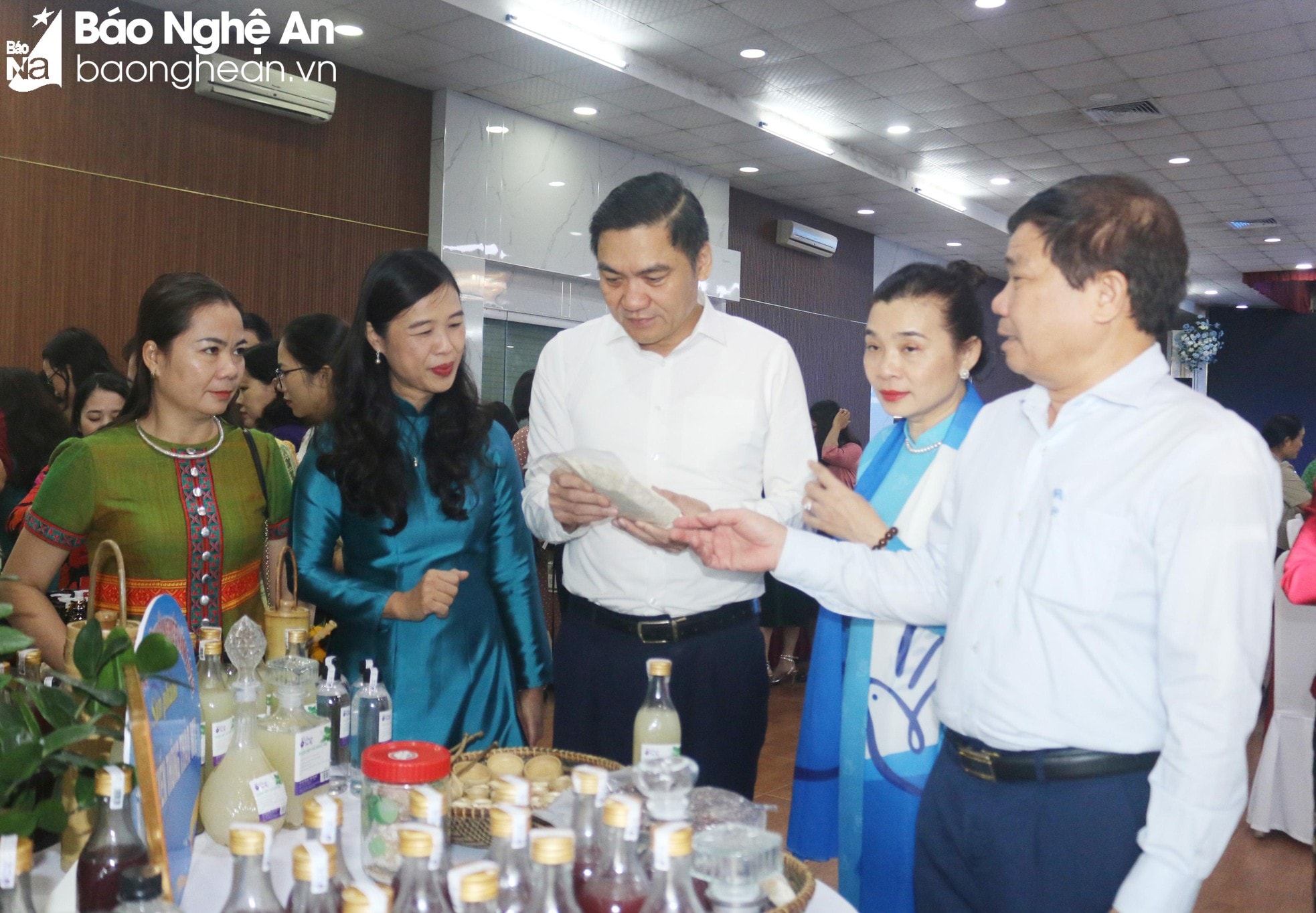For women to contribute and enjoy their full potential
(Baonghean.vn) - After 3 years of implementing programs and plans on gender equality for the period 2021 - 2025, with a vision to 2030, Nghe An has achieved many remarkable achievements, gradually creating the best conditions for women to promote their talents, creativity and comprehensive development.
Gender equality in today's society means that men and women have equal positions and roles, are given conditions and opportunities to develop their abilities for the development of the family, community, society and enjoy the same results of that development. Following the teachings of President Ho Chi Minh, our Party and State have identified the policy of gender equality and ensuring women's rights as one of the basic social policies of the country in the process of building, developing the country and integrating into the international economy.

In Nghe An, to improve the quality of gender equality implementation, the Provincial Party Committee, People's Council, People's Committee, and Provincial Fatherland Front Committee pay attention to leading and directing the timely implementation of Directives, Programs and plans issued by the Central Government; such as actively implementing Directive No. 21-CT/TW dated January 20, 2018 of the Secretariat on continuing to promote women's work in the new situation, on strategies, programs and plans on gender equality for the period 2021 - 2025, with a vision to 2030.
Thereby, the awareness and responsibility of the political system and the whole society regarding women's work have changed positively and have been effectively implemented; inter-sectoral coordination in implementing gender equality work and for the advancement of women has become increasingly close, unified, synchronous and effective; the province has formed an apparatus for gender equality work and committees for the advancement of women from the provincial to grassroots levels.

In addition, propaganda and education work, raising awareness of gender equality is regularly focused on and implemented in many forms, with rich content, suitable for regions and subjects. The work of training, fostering, arranging, promoting, and using female cadres, especially young female cadres, is basically well implemented. The proportion of women participating in Party committees at all levels, holding key positions of the province, district, agencies, departments, branches, and organizations is increasing, especially at the head and deputy head levels. 20/24 targets of the 6 goals of the national strategy on gender equality for the period 2021 - 2025 have been achieved and exceeded the set plan, accounting for 83.3% of the set plan.

However, the implementation of some contents of the strategy, programs and plans on gender equality in some localities and units is not yet extensive and synchronous, and there is a lack of urging, inspection and supervision. The proportion of female managers and leaders is still low compared to the potential and resources of female cadres in the province. The integration of gender equality issues into the contents and plans for socio-economic development of sectors and localities is still unclear, has not been implemented in a substantial manner and has not received due attention. The work of collecting information, processing data and reporting on female cadre work in some sectors, units and localities is not timely and has not been highly accurate.
There is still a lack of attention and investment of resources for gender equality activities from the local budget, especially at the commune level, a lack of resources, and a lack of real attraction of men to participate in gender equality work, for the advancement of women. Up to now, the province has 4/24 targets belonging to the goals of the national strategy on gender equality of Nghe An province for the period 2021-2025 that have not met the set plan, accounting for 16.7%.
The reason for the above existence is that the socio-economic conditions of the province still face many difficulties, the level of economic development is uneven between regions in the province, so there is still no real equality in enjoying the fruits of socio-economic development, especially for rural women and ethnic minorities... Gender prejudice against women in leadership and management activities is still strict, limiting the ability and advancement of women in the fields of political and social activities. There are no strong enough sanctions to force agencies and units to carry out training, fostering, planning and appointing female cadres in agencies, units and localities.
At the same time, some party committees and authorities, especially leaders, have not yet fully understood the role of women and have not yet put women's work on par with the role, position and requirements of the current period. Some leaders are still lacking objectivity when evaluating female cadres.
In order for gender equality work to be truly effective and substantive, in the coming time, departments, branches, sectors as well as socio-political organizations of the province will continue to effectively implement the Resolution of the 13th National Party Congress and the directives, resolutions, and conclusions of the Party Central Committee, the Politburo, and the Secretariat related to gender equality work and women's work in the new situation, including Directive No. 21 of the Secretariat.
At the same time, perfecting laws and policies on gender equality, creating conditions for women to develop comprehensively. This includes studying and amending the Law on Gender Equality and related legal documents, ensuring compliance with the Constitution, synchronization, unity, and meeting the requirements of the new situation; reviewing, researching, supplementing and implementing policies on women's work; enhancing the role and responsibility of Party committees and authorities for gender equality and women's work, especially the heads of Party committees and authorities at all levels.
In particular, the heads of Party committees and authorities at all levels are responsible for directing and organizing the synchronous implementation of solutions to effectively implement Directive 21-CT/TW; the national strategy on gender equality; paying attention to the planning, training, fostering, rotation, appointment of female cadres, creating a source of young female cadres and ethnic minority women. Paying attention to the coordination between departments, branches, unions and the Fatherland Front on gender equality and women's work; enhancing the role, capacity and effectiveness of the Women's Union at all levels.
